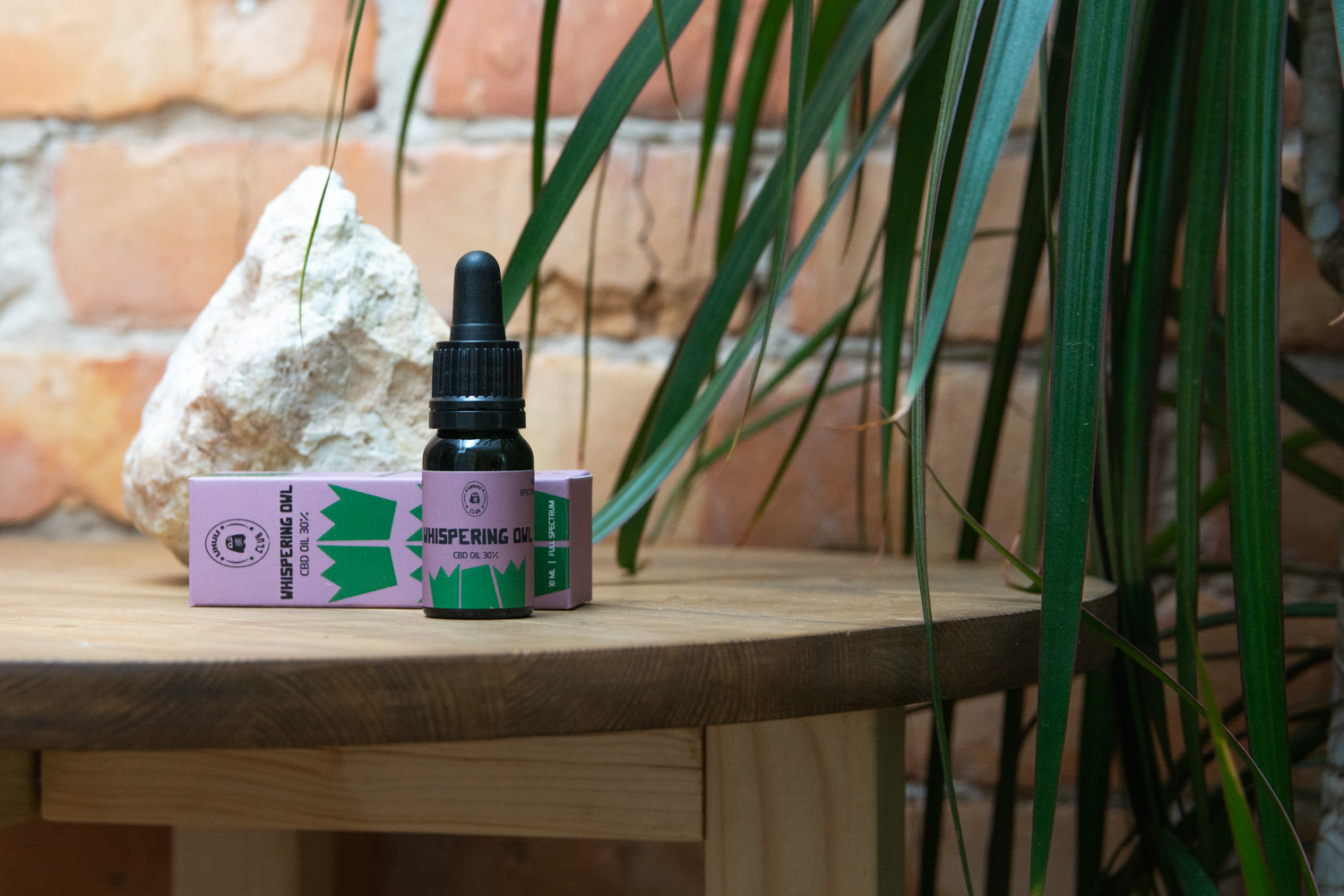In recent years, both CBD (cannabidiol) and THC (tetrahydrocannabinol) have attracted significant attention, as more and more people seek to understand how these two compounds differ—especially why one affects mood and the other does not.
The aim of this article is to provide a simple and clear overview of how these two substances work and what current science says about them. This is not a complex scientific text, but a concise explanation, suitable even for those with no prior experience in the topic.
CBD and THC: How Do They Work?
Both CBD and THC are cannabinoids — natural compounds that interact with the body’s endocannabinoid system (ECS).
The Role of the Endocannabinoid System in Maintaining Homeostasis
The endocannabinoid system (ECS) plays an important role in maintaining the body’s internal balance, known as homeostasis. When bodily functions such as mood, sleep, inflammation, or immune response become unbalanced, the ECS activates to support the restoration of the body’s natural equilibrium.
(The Therapeutic Potential of the Endocannabinoid System for the Development of a Novel Class of Antidepressants: https://www.ncbi.nlm.nih.gov/pmc/articles/PMC5877694/)
There are two primary types of receptors within the ECS:
- CB1 receptors, located mainly in the brain and central nervous system, regulate mood, memory, movement, and perception.
- CB2 receptors, located mainly in the immune system and other peripheral tissues, help regulate inflammation and support the body’s defenses.
💡 Simply put:
CB1 primarily affects mood and consciousness, while CB2 is involved in immune function and inflammation control.
- CBD (cannabidiol) does not bind directly to these receptors but indirectly influences their function. This allows CBD to regulate various bodily processes without causing psychoactive effects.
- THC (tetrahydrocannabinol) directly binds to CB1 receptors in the brain and central nervous system. As a result, THC directly impacts mood, perception, memory, and coordination, and can alter consciousness, causing the psychoactive effects commonly associated with cannabis use.
(The Therapeutic Potential of Cannabis and Cannabinoids: https://www.ncbi.nlm.nih.gov/pmc/articles/PMC5741114/)
Potential Benefits and Uses of CBD
Although research on CBD continues, multiple studies suggest its potential supportive properties in various areas:
- Stress and Anxiety Relief:
CBD has shown promise in helping to reduce symptoms of anxiety.
(Cannabidiol in Anxiety and Sleep: A Large Case Series: https://www.ncbi.nlm.nih.gov/pmc/articles/PMC6326553/) - Pain and Inflammation Management:
Due to its anti-inflammatory qualities, CBD may assist in managing chronic pain, including conditions like arthritis and neuropathic pain.
(Cannabinoids in the Management of Difficult to Treat Pain: https://www.ncbi.nlm.nih.gov/pmc/articles/PMC2503660/) - Sleep Support:
Some studies have indicated that CBD may help improve sleep quality and assist with sleep disturbances.
(Cannabidiol in Anxiety and Sleep: A Large Case Series: https://www.ncbi.nlm.nih.gov/pmc/articles/PMC6326553/) - Neuroprotection:
Early research suggests that CBD may offer protective benefits for neurons, potentially supporting conditions like epilepsy and multiple sclerosis.
(Cannabidiol: Promise and Pitfalls: https://www.ncbi.nlm.nih.gov/pmc/articles/PMC5938896/) - Skin Health:
CBD has shown anti-inflammatory and antioxidant effects that may help with skin conditions such as acne and psoriasis.
(Cannabidiol exerts sebostatic and anti-inflammatory effects on human sebocytes: https://www.ncbi.nlm.nih.gov/pmc/articles/PMC4151231/)
THC: Psychoactive Properties and Applications
THC is best known for its psychoactive effects, which may cause:
- Changes in mood and perception,
- Memory and coordination impairment,
- Anxiety or paranoia (in some cases).
Research has indicated that THC may help in the supportive relief of symptoms in severe conditions such as:
- Severe pain, nausea, and appetite loss, particularly in diseases like cancer or HIV/AIDS.
(Medical Cannabis for the Treatment of Pain and Other Disorders: https://www.ncbi.nlm.nih.gov/pmc/articles/PMC7705429/)
The Future of CBD Research
Ongoing research continues to explore the possibilities of using CBD to support health. Scientists are investigating its potential in managing chronic pain, anxiety, neurological disorders, and improving personalized health solutions through a better understanding of its interaction with the body.
The Future of THC Research
Research into THC continues as well, focusing on its possible use in pain management, appetite regulation, nausea control, and supportive care for neurological disorders.
Due to its psychoactive nature, THC therapies require strictly controlled scientific studies and regulatory approval.
In conclusion
CBD and THC are chemically related but significantly different in how they affect the body.
CBD influences the body indirectly and may offer supportive benefits without intoxication.
THC directly activates brain receptors, leading to mood and perception changes.
In conclusion, the differences between CBD and THC lie in their mechanisms of action and their range of effects. Ongoing research is expected to further clarify their potential roles in supporting health.


